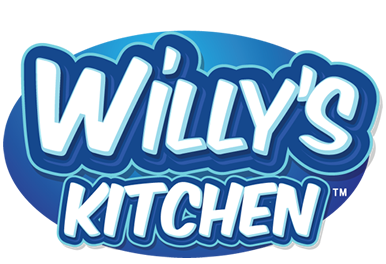Vitamins
As parents you always need to think about what’s best for your kids.
“What is the best breakfast, the best snack or the best fruits with the most amounts of antioxidants so kids don’t get sick!” It’s not always easy to know what’s right! However, sometimes one of the most obvious points is one that gets forgotten – Beside Macro-nutrients (Protein, Fat and Carbohydrates) in our body Vitamins play a big role in kids health by building a platform to support their healthy growth and overall well being. They are essential nutrients our body needs to work properly.
Why are vitamins so important for kids?
When kids ride their bicycles, go to soccer practice or simple fall by running to fast Vitamins (and Minerals) make sure that every scratch and bruise heals properly.
Vitamins boost the immune system, support normal growth and development, and help cells and organs do their jobs.
As our children grow from infanthood to puberty, their bodies’ needs are changing and increasing on a daily basis. Whatever they eat at a young age will become their body’s foundation, which will decide their health in the future.
Vitamins give their bodies the ability to grow and proceed through these natural changes much more efficiently and it helps them stay on track developmentally. When kids are deficient in vitamins over a longer period of time, they can end up with various conditions and problems in the future.
Since most children are physically active and their metabolisms are fast, parents may not see any damage, if any. But if we allow them to eat nothing but junk food, future damage in their development is almost guaranteed!

What kinds of vitamins are there?
Fat-soluble vitamins
The fat-soluble vitamins (also lipid-soluble vitamins), A, D, E, and K, are transported through the body by being absorbed and stored in our body fat for long periods of time, therefore we don’t need to replenish them every day.
But because these vitamins build up over long periods of time, it’s possible to develop vitamin toxicity from too much. This is very unlikely to happen though from normal food consumption and a healthy, well balanced diet. But more to that later.
Fat-soluble vitamins are:
Vitamin A
• prevents eye problems
• promotes a healthy immune system
• is essential for the growth and development of cells, and keeps skin healthy.
Good sources of Vitamin A are: Cheese, milk, eggs, liver, fortified cereals, darkly colored orange or green vegetables (such as carrots, sweet potatoes, pumpkin, and kale) and orange fruits such as cantaloupe, apricots, peaches, papayas, and mangos.
Vitamin D
• strengthens bones and teeth in our body help regulate the amount of calcium in the body
We get most of our vitamin D from sunlight on our skin. This vitamin is produced by our body under the skin in reaction to summer sunlight.
You can also get vitamin D from eggs, fish oils (salmon, sardines, mackerel), milk and fortified foods like milk spreads and cereals.
A lack of vitamin D can lead to bone deformities such as rickets in children!
Vitamin E
• works as an antioxidant and helps protect cells from damage
• is also important for the health of red blood cells.
Vitamin E can mostly be found in: vegetable oils (and soya, olive, corn), nuts and seeds, green leafy vegetables, avocados, wheat germ, and whole grains.
Vitamin K
• is needed for blood clotting
• helps build strong bones
Vitamin K is found in: Green leafy vegetables, such as broccoli and spinach, vegetable oils, cereals.
Water-soluble vitamins
Water-soluble vitamins are dissolved in water and transported through the body. Since they are not stored in the body, you need to replenish them more frequently, preferred daily.
If you have more than you need, your body gets rid of the extra vitamins when you urinate. As the body does not store water-soluble vitamins, these vitamins are generally not harmful. However, this does not mean that all large amounts are necessarily harmless.
Water-soluble vitamins, unlike fat-soluble vitamins, can be destroyed by heat or by being exposed to the air for too long. So if you juice fruits and vegetables in the morning it is best to drink the juice right away to keep vitamins alive and to get the most benefits possible.
They can also be lost in water used for cooking. This means that by cooking foods, especially boiling them, we lose many of these vitamins. The best way to keep as many of the water-soluble vitamins as possible is to steam or grill foods, rather than boil them.
Water-soluble vitamins are:
Vitamin C
• helps wound and scratch healing
• helps protect cells and keeps them healthy
• strengthens the immune system, connective tissue and organs
Vitamin C is found in: Oranges, strawberries, red and green peppers, broccoli, Brussels sprouts, potatoes, kiwi, tomatoes.
A lack of Vitamin C can lead to scurvy!
B Vitamins
There are 8 types of vitamin B …
• Vitamin B1 (thiamine)
• Vitamin B2 (riboflavin)
• Vitamin B3 (niacin)
• Vitamin B5 (pantothenic acid)
• Vitamin B6 (pyridoxine)
• Vitamin B7 (biotin)
• Vitamin B9 (folic acid)
• Vitamin B12 (cyanocobalamin)
… and they all have important functions.
To make it a little easier we combined the majority of Vitamin B benefits and where you can find them.
B Vitamins:
• help release energy from food
• keep nerves, cells, muscle tissue and digestive system healthy
• form red blood cells and help carry oxygen through our body
• keep skin and eyes healthy
• support our central nervous system
They can be found in:
• beef, pork, chicken, turkey, fish (salmon, cod)
• mostly green vegetables (broccoli, Brussels sprouts, spinach, asparagus, peas, kale)
• fresh and dried fruits, peanuts
• eggs, milk, cheese
• whole grains (breads, some cereals, oats, wheat germ, brown rice)
potatoes
• liver, kidney
What are the most important vitamins for kids and how do I get them?
Let’s face it, – It is tough being a kid!!
You grow new teeth, you play, you get sick, you need to jump higher and run faster than your friends and you beat your dad at skimming stones. There is a lot going on and it isn’t always easy for parents to patch up all of the scratches kids bring home!
Many parents don’t know how to supply their kids with enough vitamins to make it through the day, nor where to find them. This could be complicated, but it doesn’t need to be.
When it comes to Vitamins you need to be aware that, like with most other food nutrition, way too much and way to little of something over time can cause harm in our body, so it is important to maintain a healthy diet with “a little bit of everything”.
Most kids aren’t heavy eaters and their portions are small, therefore a vitamin “overdose” is hardly possible. Unfortunately though the items most kids DO like to eat (i.e. mac’n cheese, chicken fingers etc) aren’t necessarily great sources of vitamins at all.
Produce Centers and Farmers Markets offer us a wide variety of fresh and healthy food items seven days a week to get us the vitamins and minerals our body needs.
A Few Tips
• Instead of trying to memorize each and every vitamin, its function and where to find it, please see the Food items listed below each Vitamin in this article and get inspired.
Are your kids eating these items for breakfast, lunch, dinner or as snacks throughout the week? If yes, how many? And if not, how can you improve that?
• Find out what your kids like to eat and talk to them about trying some new things here and there.
• Little by little introduce new items. Make yourself a shopping list and shop for these items, maybe replace some “habit” veggies with new ones and see how your kids like them.
• Shop, prepare, cook and eat the new items together with your kids to inspire them and their opinion.
• Pick foods items with certain vitamins based on what your child likes to do. EXAMPLE: Many kids nowadays spend more time watching TV or on the computer. Since Vitamin A supports the eyes it is helpful to choose food items with lots of Vitamin A.
Can there be too many vitamins?
More is not always better…
I spoke to a lot of different people, ranging from stay-home moms to “working-out-daily” sport fanatics, about Vitamins. Many of them thought if they filled up their body with as many different vitamins as possible then they would stay healthier or in better shape, or they wouldn’t get sick anymore! That is not true!
Think of your body as a glass of water – if you keep pouring water into it after it’s full it will simply overflow, right?
Your body can only absorb and use a certain natural amount of vitamins per day. After that anything extra will be “washed out” (water soluble vitamins) or they could actually create some damage to your body if consumed in abundance!
Since the fat-soluble vitamins, A, D, E, and K, are stored in the body for long periods of time they generally pose a greater risk for toxicity when consumed in excess than water-soluble vitamins. Symptoms of a vitamin “overdose” in children would be stomach problems such as diarrhea, nausea and even cramps.
A vitamin overdose in adults over many years could be more severe.Since children don’t eat large portions it is easier to introduce more healthy snacks throughout the day to cover all necessary vitamin groups. Therefore eating a normal, well-balanced diet will not lead to toxicity in healthy and active children. .
Can there be not enough vitamins?
As we learned in this article Vitamins are part of the functioning, healing, development and overall well being of a kid’s body, so not getting enough vitamins will create the opposite effect.
If your children are low in vitamins and specific nutrients, they become more likely to experience a variety of conditions. These can affect everything from their developmental growth to their internal systems. The problem is that many of these symptoms may not show up immediately, which could leave plenty of time for their bodies to develop problems that are major concerns, instead of small immediate issues.
For example: A lack of Vitamin D in children’s diets could create a condition called Rickets, which can lead to weak or possibly even deformed bones for a lifetime.
Kids experience breaks and fractures much easier, which will become more severe in adult life. Therefore you want to make sure your children get plenty of Vitamin D through both, sun exposure and the right foods in their diet.
A lack of Vitamin C can lead to tiredness, weakness, sore muscles and bleeding gums and not enough Vitamin E can cause the destruction of vital red blood cells.
More severe conditions can be obesity, diabetes, liver dysfunction and heart problems. In extreme cases vitamin deficiencies can even lead to death.
All of this should not scare you, but it should DEFINITELY make you aware of what can happen if the human body doesn’t get enough good nutrition in a young age.
A healthy diet with fresh food items with the right amount of (out door) exercise is all you need to build a healthy foundation.
Multi-Vitamins?
Personally I am NOT a fan of vitamin pills whatsoever and I don’t want to promote them in this article, but they should still be mentioned!
I grew up in an almost perfect food setting: We had about every vegetable, fruit, berry or nut you can imagine around our house. Everything was fresh, nothing came frozen or in cans. We also had chicken and rabbits. I’d be outside many hours per day – playing, exercising etc. There weren’t microwaves and I think I saw the first fast-food place when I was 17. Unfortunately not everyone has a childhood like that.
In culinary school I learned that vitamins die of age, extreme heat or cold, as well as being exposed to air and sunlight for too long. Therefore I personally don’t trust pills, because obviously they aren’t fresh! I really cannot believe that all of the vitamins mentioned on the back of the supplement box are actually inside of these pills! Maybe I’m too old school… or I just like to eat, haha.
When you make sure your children eat right and get the proper amount of exercise, it sets them up for a lifetime of healthy living. This is the kind of education they will take with them into adulthood and share with their own children. Give them a healthy lifestyle now and they will reap the rewards for as long as they choose to follow it. It starts with that “Apple A Day” and ends with happy, healthy children who are strong and grow to their full potential.
Please leave us some comments, ideas and inspirations for others how you add vitamins and nutrition into your child’s life.
Thank you .
Written by Sven Garrett





